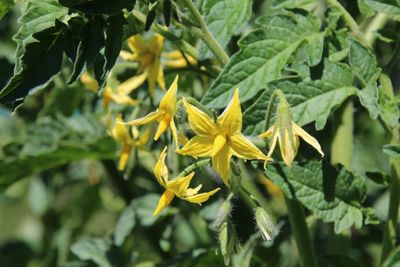Plants, however, are more complex. The reproductive organs of plants can be found on separate male and female plants, or one plant can have both male and female parts. These male and female structures can be on separate flowers or flowers may also be hermaphroditic. What are hermaphrodite plants? Let’s learn more about plants that are hermaphrodites.
Hermaphroditic Plant Info
Flowers contain the reproductive organs of plants. The main function of the colorful flower petals that most gardeners are drawn to is to attract pollinators to the plant. However, the flower petals also protect the delicate reproductive organs which form in the center of the flower. The male parts of a flower are known as the stamens and anthers. The anthers contain the flower’s pollen. The female organs of a flower are known as the pistil. This pistil has three parts – the stigma, style, and ovary. Pollinators carry pollen from the male anthers to the pistil, where it then fertilizes and grows into seeds. In plant breeding, it is important to know where the male and female reproductive organs are on plants. Hermaphroditic plants have male and female reproductive organs within the same flower, like tomatoes and hibiscus. These flowers are oftentimes referred to as bisexual flowers or perfect flowers. Plants that contain male and female reproductive organs on separate flowers on the same plant, like squash and pumpkins, are called monoecious plants. Plants that have male flowers on one plant and female flowers on a separate plant, like kiwi or holly, are known as dioecious plants.
Hermaphroditic Plants in Gardens
So why are some plants hermaphrodites while others are not? The placement of the reproductive parts of a plant depends upon how they are pollinated. Flowers on hermaphroditic plants can pollinate themselves. The result being seeds that produce replicas of the parent. Plants that are hermaphrodites are more common than you may think. Some popular hermaphroditic plants are:
Roses Lilies Horse Chestnut Magnolia Linden Sunflower Daffodil Mango Petunia
